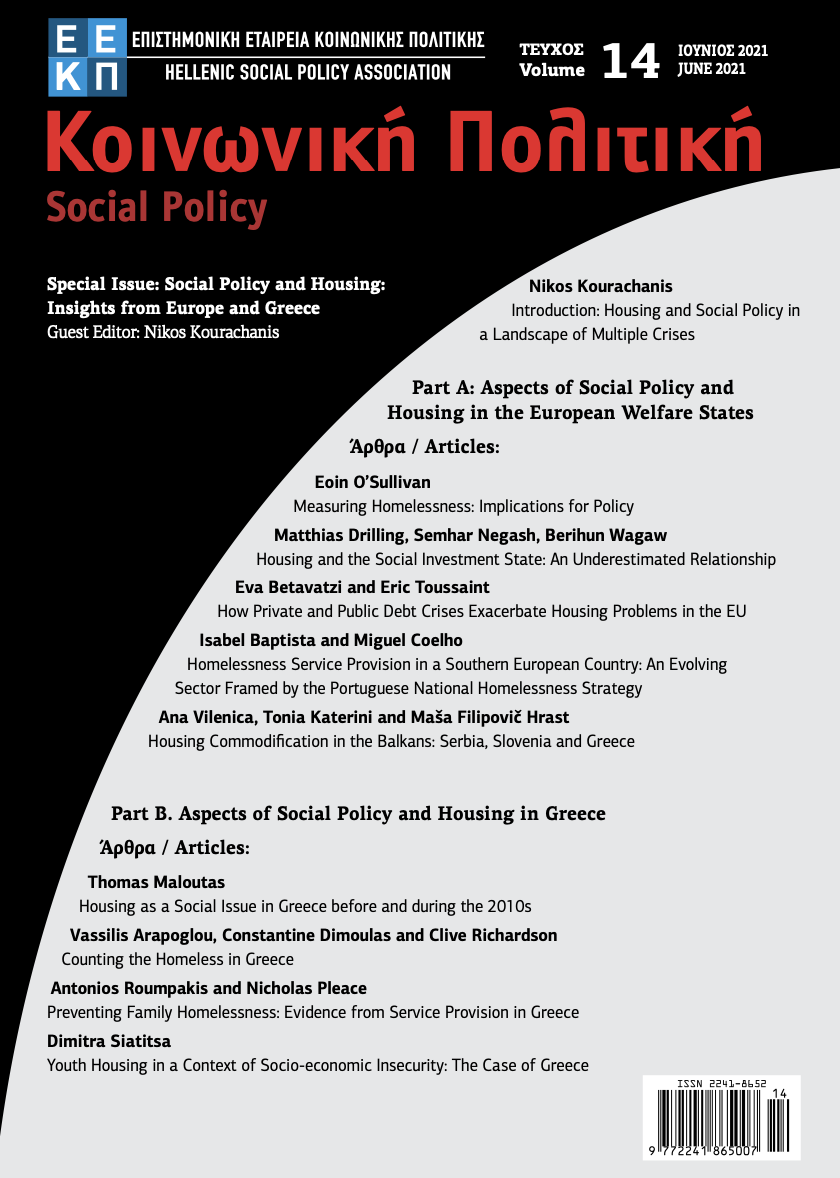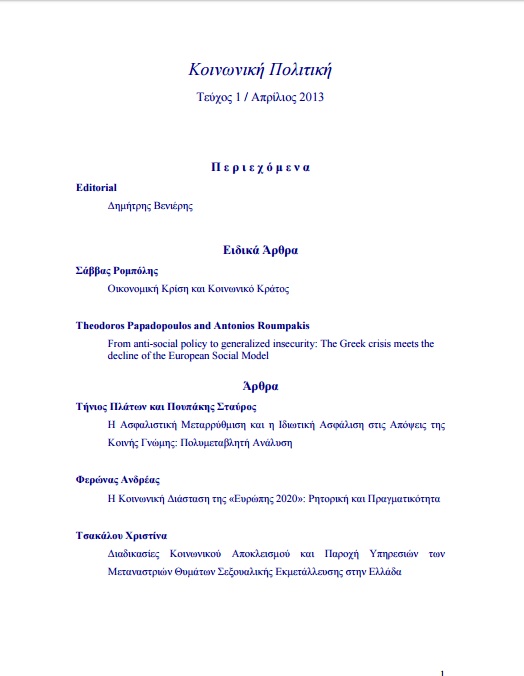Preventing Family Homelessness: Evidence from Service Provision in Greece
Περίληψη
Traditionally Greece demonstrated high rates of homeownership and low levels of social rented housing. Housing represented one of the key resources of family asset-based social security in an otherwise highly fragmented social security system. The eruption of the sovereign debt crisis led to the demise of traditional ‘middle class jobs’, growing job insecurity, and families often being in debt, predominantly on housing and personal loans, making the position of many families uncertain and at worst insecure. The article presents findings from a two-year project which explored both the immediate and longer-term outcomes for families who received support from a pilot Family Support Service, designed to prevent housing insecurity and potential homelessness. We present evidence on housing conditions, debt repayment and management, employment, poverty and well-being. We conclude with a reflection of the Greek housing and social policy responses in the aftermath of the sovereign debt crisis and by contextualising our results within the wider European context.
Λεπτομέρειες άρθρου
- Πώς να δημιουργήσετε Αναφορές
-
Roumpakis, A., & Pleace, N. (2021). Preventing Family Homelessness: Evidence from Service Provision in Greece. Κοινωνική Πολιτική, 14, 129–148. https://doi.org/10.12681/sp.29082
- Τεύχος
- Τόμ. 14 (2021)
- Ενότητα
- Άρθρα

Αυτή η εργασία είναι αδειοδοτημένη υπό το CC Αναφορά Δημιουργού 4.0.
Οι συγγραφείς των άρθρων που δημοσιεύονται στο περιοδικό διατηρούν τα δικαιώματα πνευματικής ιδιοκτησίας επί των άρθρων τους, δίνοντας στο περιοδικό το δικαίωμα της πρώτης δημοσίευσης. Άρθρα που δημοσιεύονται στο περιοδικό διατίθενται με άδεια Creative Commons 4.0 και σύμφωνα με την άδεια μπορούν να χρησιμοποιούνται ελεύθερα, με αναφορά στο/στη συγγραφέα και στην πρώτη δημοσίευση για μη κερδοσκοπικούς σκοπούς και με δικαίωμα τροποποίησης μόνον με παρόμοια διανομή (αν αναμείξετε, τροποποιήσετε, ή δημιουργήσετε πάνω στο υλικό, πρέπει να διανείμετε τις δικές σας συνεισφορές υπό την ίδια άδεια όπως και το πρωτότυπο).




